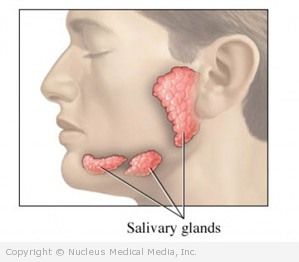Sjogren’s Syndrome
(Primary Sjogren’s Syndrome; Secondary Sjogren’s Syndrome)
Sjogren’s Syndrome – Definition
Sjogren’s syndrome is an inflammatory disease. The immune system destroys cells in exocrine glands. It occurs most often the tear and salivary glands. It is a lifelong condition. There are two types:
- Primary Sjogren’s syndrome — occurs alone
- Secondary Sjogren’s syndrome — occurs with other rheumatic conditions such as rheumatoid arthritis, scleroderma, or systemic lupus erythematosus (lupus)
Sjogren’s Syndrome – Causes
The causes of Sjogren’s are unknown. Contributing factors may include:
- Viral infections
- Heredity
- Hormones
Sjogren’s Syndrome – Risk Factors
Factors that increase your risk for Sjogren’s include:
Sex: female
Age: 40-60 years old
Other rheumatic or autoimmune diseases
Sjogren’s Syndrome – Symptoms
Symptoms may include:
- Red, burning, itching, and/or dry eyes
- Dry mouth
- Difficulty swallowing
- Loss of taste and smell
- Dry skin, nose, throat, and/or lungs
- Swollen salivary glands
- Severe dental cavities caused by dry mouth
- Oral yeast infections
- Vaginal dryness
- Skin rashes
- Joint and muscle pain
- Fatigue
In some cases, other parts of the body are affected as well. These include:
- Blood vessels
- The nervous system
- Organs such as the lungs, liver, pancreas, kidneys, and thyroid
Anti Ro antibodies are often present with Sjogren’s. These may cross to the baby during pregnancy. In some cases, they can cause neonatal lupus or infant heartblock.
Sjogren’s Syndrome – Diagnosis
This disease can affect many areas on your body. You may have to see several specialist before a final diagnosis is made. Dry eyes and mouth also increase with age. They can also be caused by medicine. The doctor will ask about your symptoms and medical history. A physical exam will be done.
Tests may include:
- Blood tests — including rheumatoid factor and other tests used to detect and monitor autoimmune diseases
- Chest x-ray — a test that uses radiation to take a picture of structures inside the body, in this case the lungs
- Lip biopsy — removal of a sample of lip tissue to look for inflammation in the accessory salivary glands located there
- Schirmer test — placement of small pieces of paper between the lower eyelid and eyeball to see how much moisture is being produced
- Slit-lamp examination — a detailed exam of the eye with an adjustable light
- Urine test — to check kidney function
Sjogren’s Syndrome – Treatment
There is no cure for Sjogren’s. No treatment can restore the ability of the glands to produce moisture. Patients with Sjogren’s have an increased incidence of non-Hodgkin’s lymphoma. They should be screened aggressively. The goal of treatment is to relieve symptoms.
Treatments include:
Medication
To help relieve dryness:
- Artificial tears, artificial saliva, and vaginal lubricants
- Pilocarpine — ocular and oral dryness
- Cevimeline — requires less frequent dosing than pilocarpine, may cause nausea
To relieve joint and muscle pain:
- Aspirin or nonsteroidal anti-inflammatory drugs (NSAIDs)
To relieve inflammation / swelling:
- Plaquenil — antimalarial drug with anti-inflammatory properties
- Steroids
- Methotrexate —a steroid-sparing agent
Lifestyle Measures
- Mild exercise can help relieve stiffness in the joints.
- To help relieve dry mouth, sip liquids often and suck on sugar-free candies.
- Brush, floss, and see your dentist regularly. This can help to prevent cavities.
- Use nonscented moisturizers to help relieve dry skin.
This condition is generally benign. However, people with severe cases are at increased risk for developing lymphoma. This is a cancer of the white blood cells. Your doctor will need to monitor you for this.
Sjogren’s Syndrome – Prevention
There are no guidelines for preventing Sjogren’s syndrome. The cause is unknown.

